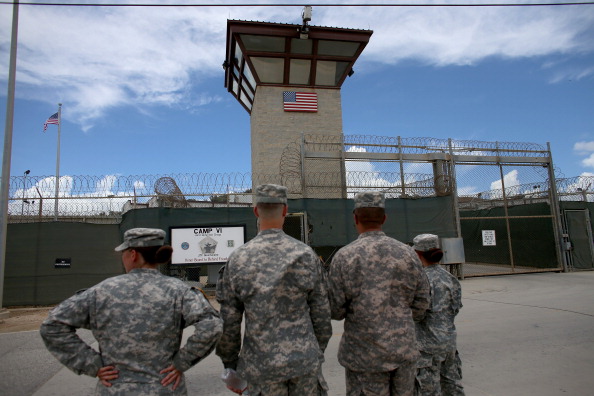Guantanamo Bay detainee, waterboarded 83 times by the CIA, makes case for release


A free daily email with the biggest news stories of the day – and the best features from TheWeek.com
You are now subscribed
Your newsletter sign-up was successful
For the first time in 14 years, Abu Zubaydah was seen on Tuesday by members of the public who are not part of his legal team.
Zubaydah, 45, was captured in Pakistan in 2002, and has been at Guantanamo Bay ever since. Born in Saudi Arabia to a family of Palestinian heritage, he was in Afghanistan in the early 1990s, serving as a facilitator for militants. When he was first taken into American custody, intelligence officers wrongly concluded he was one of the top leaders of al Qaeda. The FBI was able to get information from him about one of the Sept. 11 planners and other al Qaeda members, but because the CIA believed he was high up in the terrorist organization, they thought he was withholding information. Despite objections from the FBI, he was waterboarded 83 times (Zubaydah was the first detainee to undergo waterboarding). He was also sleep deprived, thrown against a wall, and confined to a small cramped box, The New York Times reports.
On Tuesday, Zubaydah appeared via satellite at a hearing before the Periodic Review Board, a group of representatives from six security agencies who decide if a prisoner is too dangerous to be released. He is one of a few dozen Guantanamo Bay detainees being held without charges but deemed a risk to the public. In a statement read for him by a representative, he said he should be freed because he has "no desire or intent to harm the United States or any other country." He said he wants to be back with his family and has "some seed money that could be used to start a business." The Defense Department asserts that Zubaydah "probably retains an extremist mindset." The board will announce in about a month if Zubaydah will stay imprisoned or be transferred to another country. His lawyer, Joseph Margulies, told the Times Zubaydah was never in al Qaeda, but is the "poster child for the torture program, and that's why they never want him to be heard from again."
The Week
Escape your echo chamber. Get the facts behind the news, plus analysis from multiple perspectives.

Sign up for The Week's Free Newsletters
From our morning news briefing to a weekly Good News Newsletter, get the best of The Week delivered directly to your inbox.
From our morning news briefing to a weekly Good News Newsletter, get the best of The Week delivered directly to your inbox.
A free daily email with the biggest news stories of the day – and the best features from TheWeek.com
Catherine Garcia has worked as a senior writer at The Week since 2014. Her writing and reporting have appeared in Entertainment Weekly, The New York Times, Wirecutter, NBC News and "The Book of Jezebel," among others. She's a graduate of the University of Redlands and the Columbia University Graduate School of Journalism.
